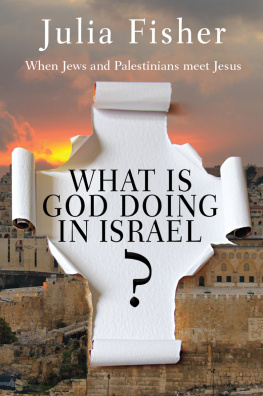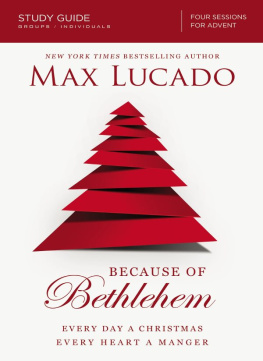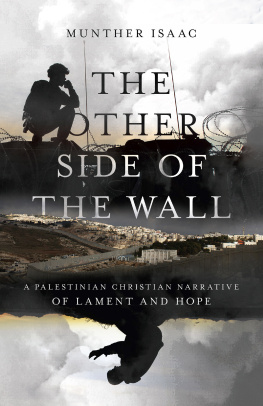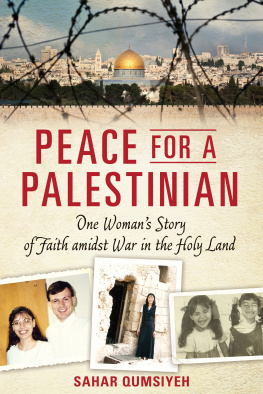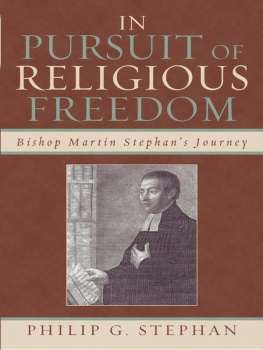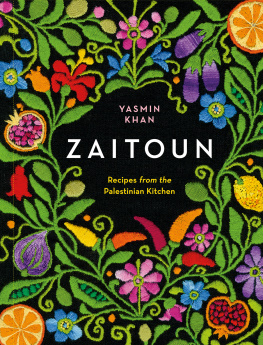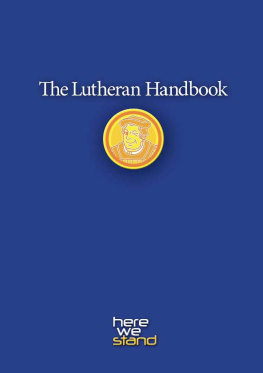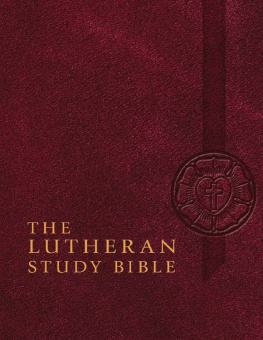faith
in the face
of empire
faith
in the face
of empire
The Bible Through Palestinian Eyes
mitri raheb

Copyright
Founded in 1970, Orbis Books endeavors to publish works that enlighten the mind, nourish the spirit, and challenge the conscience. The publishing arm of the Maryknoll Fathers and Brothers, Orbis seeks to explore the global dimensions of the Christian faith and mission, to invite dialogue with diverse cultures and religious traditions, and to serve the cause of reconciliation and peace. The books published reflect the views of their authors and do not represent the official position of the Maryknoll Society. To learn more about Maryknoll and Orbis Books, please visit our website at www.maryknollsociety.org.
Copyright 2014 by Mitri Raheb.
Published by Orbis Books, Box 302, Maryknoll, NY 105450302.
All rights reserved.
No part of this publication may be reproduced or transmitted in any form or by any means, electronic or mechanical, including photocopying, recording, or any information storage or retrieval system, without prior permission in writing from the publisher.
Queries regarding rights and permissions should be addressed to: Orbis Books, P.O. Box 302, Maryknoll, NY 105450302.
Manufactured in the United States of America.
Manuscript editing and typesetting by Joan Weber Laflamme.
ISBN 978-1-62698-065-5
Dedication
In memory of my father, Bishara Mitri Raheb,
who instilled in me faith and embodied creative resistance.
Acknowledgments
T his book was written during a stay at Yale Divinity School in the summer of 2012. I would like to acknowledge with gratitude the support of many friends and colleagues whose efforts have made the publishing of this book possible: John Lindner, the director of the Department of External Relations at Yale Divinity School, for his friendship and for making this stay possible and enjoyable; the librarians at Yale Divinity School under the leadership of Paul Stuehrenberg, who were always helpful and supportive; and the Overseas Mission Study Center (OMSC) for its hospitality. A special thanks goes to Ms. Sarah Makari, who worked on editing the manuscript, and to Robert Ellsberg from Orbis Books for reviewing the manuscript and offering many valuable suggestions. Im thankful to all those at Orbis for their interest in bringing this book into the American market.
Introduction
J esus was a Middle Eastern Palestinian Jew. If he were to travel through Western countries today, he would be randomly pulled aside and his person and papers would be checked. The Bible is a Middle Eastern book. It is a product of that region with all of its complexities. While it might seem that I am stating the obvious, I firmly believe that this notion has not been given enough attention. In fact and in spite of being a Middle Easterner, I have come to discover the importance of the geo-politics of the region only in the last ten years. I began to sense that it was not merely by chance that the three monotheistic religions and their sacred scriptures, for good or for bad, hailed from the same region. The starting point for this approach, as well as for this book, is geo-politics. For me, as a Palestinian Christian, the realization of this fact made for a fascinating discovery.
This discovery did not come to light in an academic setting somewhere in the West, and it was not the outcome of a study I undertook in a research center. It was, instead, the gradual accumulation of knowledge I gained in the field by observing the movements and processes occurring in Palestine over a prolonged period. In short, I was observing, analyzing, and trying to understand what was happening around me. In that sense this book is not less scientific for not having been developed in a Western academic setting with Western methodology; I would argue that it is more scientific because it is based on lengthy and measured observation on the ground in Palestine. Observation is the mother of science. Observation helps us identify patterns or logical facts even if we feel that things are utterly illogical and unpredictable. I have been observing the geo-political and socio-religious fields in Palestine daily for the last twenty years. But I am also a pastor; I have to walk to the pulpit Sunday after Sunday to translate scripture to those sitting in the pews. And as a pastor I refuse to separate the reality of this world from the reality of the Bible by preaching a cheap gospel that neither challenges reality nor is challenged by it. This particular challenge, which is personal, ongoing, and deeply serious, is the environment in which I made this discovery.
What I present here is a theology from and for the Palestinian context. But again, this should not undermine the outcome, or question its seriousness. On the contrary, I believe that living the struggle of Palestine, as a Christian who wrestles daily with scripture, and as an academician, who seeks to analyze and understand what is going on around me, has provided me with a unique environment and setting for such a discovery. The parameters for this experiment are living on Palestinian soil, under Israeli occupation, as a Christian. This book is my attempt to document this experience so that the findings will not be lost but will be available for a wider audience to build upon. The setting of this experiment is highly singular; it might not be possible to replicate it in the future. The stark reality of the yearly decreasing percentage of Christians in Israel-Palestine and throughout the Middle East will remove an important componentthe Christian elementof the setting for this book. My generation might be the last in Palestine to struggle with scripture and its meaning in its original context of permanent occupation.
When I went to Yale Divinity School in June 2012 to write this book, I thought I knew how it would look. My intention was to introduce a new theory in biblical hermeneutics, one that I have been developing for almost a decade. I wanted it to be an academic work that would speak mainly to theologians and students of theology in a language with which they are familiar. Yet, after a week of discerning, I decided that this is not who I am. Instead of writing a book about methodologies and fundamentals that would be understood only by experts in theology, I opted to write a popular book that would be accessible to laypeople who are looking for the Bible to make sense, but also for those who are interested in the Middle East in general and the Palestinian-Israeli conflict in particular, as well as the millions of others who feel the heat of the empire in their daily struggle. Instead of discussing the theory of hermeneutics, I decided to lay out how the actual reading of the Bible in the Middle East today might, could, and should look. To give the work a theological framework, I inserted two chapters that are academic in nature. The first chapter, therefore, starts with my understanding of history in relationship to the biblical story and to the formation of identity. For me, as a Palestinian Christian, Palestine is the land of both my physical and my spiritual forefathers and foremothers. The biblical story is thus part and parcel of my nations history, a history of continuous occupation by succeeding empires. In fact, the biblical story can best be understood as a response to the geo-political history of the region.
People who are acquainted with my previous books will find in this monograph a new language, approach, and perspective that differ from some of my earlier writings. In those efforts, I now realize, I was dancing to the rhythm of European organ music and theology. I wanted to show that I had mastered the tools of European methodologies, and I tried to utilize them to defend my case as a Palestinian Christian. With this book I feel that I am composing notes for the beat of the drums that constitute the main musical instruments in the Middle East. After a long journey in and through Anglo-Saxon theology, I sense that I have finally landed in the Middle East, where I belong. The work is thus an invitation to the reader to join me on a journey to the heart of the Middle East and into the heart of the biblical message.
Next page


